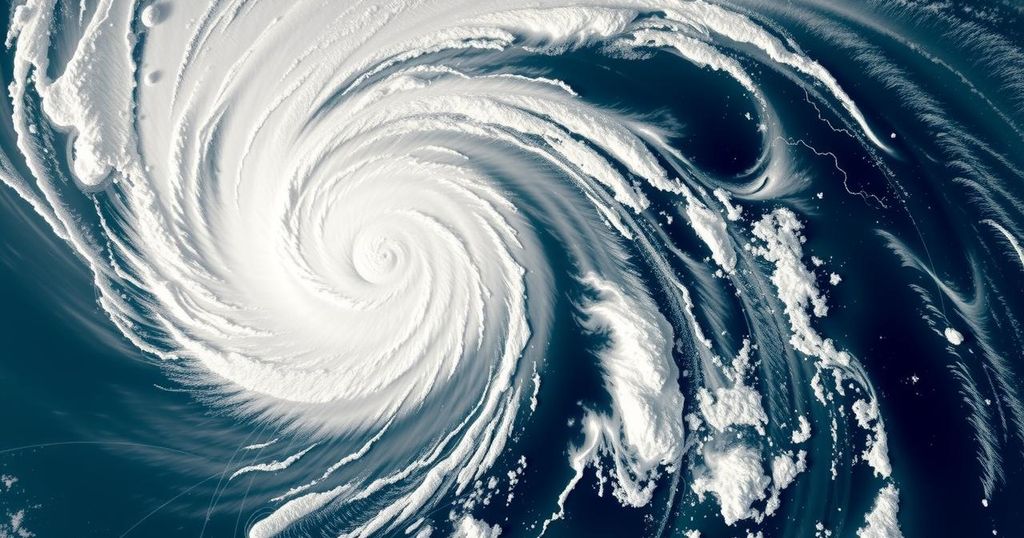Tropical Cyclone Chido has caused severe damage in Mayotte, bringing winds over 220 km/h. Though there were no reported casualties, numerous homes lost power, and extensive damages were reported. The cyclone is moving towards Mozambique, affecting millions and raising concerns for flood risks in the region. Climate change is worsening the intensity of these storms, posing unprecedented challenges for vulnerable nations.
Tropical Cyclone Chido has wreaked havoc across Mayotte, a French territory in the Indian Ocean, as it advances towards the eastern coast of Africa. The storm unleashed winds surpassing 220 kilometers per hour, resulting in widespread structural damage, particularly in residential areas. The Mayotte Prefect, Francois-Xavier Bieuville, reported the cyclone as the most violent to afflict the region since 1934, while assuring that, at present, there were no immediate reports of casualties.
In the aftermath of the cyclone’s peak, emergency services commenced rescue operations after the highest alert level was lifted. Despite this, a red alert remains in effect for the general populace, with officials advising residents to stay in secure shelters. French Interior Minister Bruno Retailleau emphasized the extensive damages sustained and confirmed the mobilization of state and local emergency services to address the crisis. Reports indicated that thousands of homes are devoid of power, with many structures dismantled and numerous trees uprooted.
To support the relief efforts, an initial contingent of 110 rescuers and firefighters has been dispatched from France and Reunion, with additional personnel to follow soon. The neighboring Comoros Islands are also enduring the cyclone’s onslaught, raising concerns for a group of fishermen reportedly missing after failing to return.
Cyclone Chido is anticipated to continue its eastward path, potentially impacting Mozambique on Saturday night or early Sunday, with officials estimating that approximately 2.5 million residents in northern provinces may experience adverse effects. Lands in Malawi and Zimbabwe are also preparing for possible flooding due to the cyclone’s arrival. The cyclone season, spanning from December to March, has historically brought severe weather patterns to southern Africa, where regions have experienced devastating cyclones resulting in significant mortality and displacement in previous years. The compounding effects of climate change are noted to exacerbate the severity of these cyclones, posing significant challenges for developing countries in the region.
The occurrence of cyclones in the Indian Ocean poses severe threats to coastal regions, particularly in southern Africa. Historically, cyclones such as Idai and Freddy have caused catastrophic damages, leading to significant loss of life and humanitarian crises. The seasonal tendency for such storms coincides with the months of December through March. Recent studies have indicated that climate change is escalating the intensity of these weather systems, markedly impacting economically vulnerable countries that contribute minimally to the phenomenon. Recent projections suggest that millions are vulnerable to the upcoming impacts of Cyclone Chido as it moves towards Mozambique and beyond.
In summary, Tropical Cyclone Chido has caused significant disruption in Mayotte, known for its extensive damage and high wind speeds. The cyclone poses a formidable threat to nearby regions, particularly Mozambique, where millions may face adverse consequences. With the compounding effects of climate change making storms increasingly severe, the preparedness of local governments and emergency services is critical to mitigating future risks associated with cyclonic activity in the area.
Original Source: www.voanews.com






